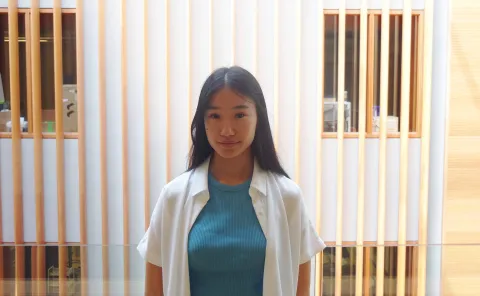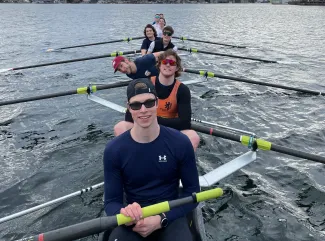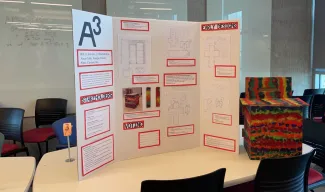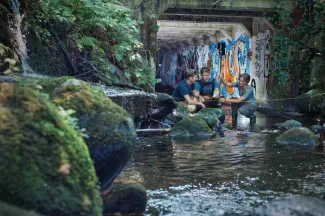"When you’re an engineer, you have the opportunity and responsibility to work for a positive change in the world."

Elizabeth Liu
- Degree:
- Bachelor of Applied Science
- Program:
- Campus: Vancouver
- Year: Going into 3rd year (as of June 2023)
Why did you want to study engineering?
I always thought I’d end up in a STEM field. Engineering was certainly on my radar as I come from a family of engineers. However, I was under the impression that engineering was all about coding, which I wasn’t that interested in. However, I did some engineering camps at UBC, which opened my eyes to the breadth of areas encompassed by engineering. I had also thought it would be very rewarding to be a teacher, which is one reason I picked engineering over the sciences – I saw engineering as a way to use my knowledge to help people.
How did you choose your specialization in environmental engineering?
I was originally interested in mechanical engineering. But during my exposure to different specializations in foundation year, I became interested in civil engineering, and, in particular, sustainable design and environmental green design. Given that our world is in a climate crisis, environmental engineering seemed like a good choice to try and make a difference.
Foundation Year Environmental Engineering
Was engineering what you thought it would be?
First year was far harder than I initially expected. I had done IB in high school and thought I had strong time management skills. Engineering is a heavy course load, and I was balancing that with my involvement in rowing. So I needed to make some adjustments and change my expectations.
But engineering is not an impossible degree and it’s not like all you can do is school.
I’ve just completed my second year, I’m an assistant rowing coach for the men’s novice team and I continue to work part time throughout the school year. I’ve also done very well academically, making it onto the dean’s honour list this year.
Where do you see yourself going from here? How will you use your engineering degree?
As a young person, it’s frustrating to see how countries are making short-sighted decisions that impact our future. I want to make a difference.
Anything else you want to add?
Environmental Engineering is a smaller program than some of the other engineering specializations, and I think that’s one of its main benefits. Even in second year, we’ve had a lot of face time with our professors and have had some very interesting discussions in class.








